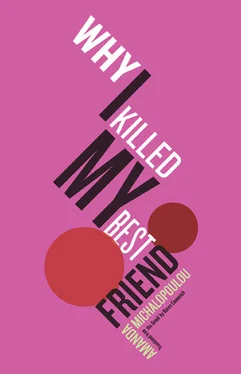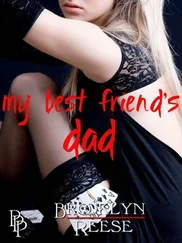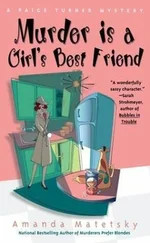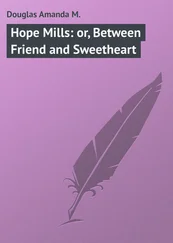I’m gliding along on a magic carpet. The crowd is pushing me. Even if I refused to walk, all these elbows and hands would get me to the escalator somehow. The whistles are blasting, teenagers are jumping up and down in place as if it were a concert. It must be nice, but I can’t tell, can’t judge. I’m gripping the woman’s hand, the same hand that just now tugged at my sleeve. I can hardly breathe.
“Where are we going, love?”
Maybe it’s the word she uses: love . Her difficulty pronouncing the “l.” The simplicity of the phrase, “I don’t know how to read.” It’s getting harder and harder for me to breathe. The stairs quiver before me. People’s faces, too. The sound of the whistles is distorted now, almost demonic in my ears. I feel hemmed in, claustrophobic. I have to take care of this woman and then get out of here. But where will I go?
Anna, the Albanian’s face still haunts me. I see it behind the reflective guards the riot police wear over their eyes. I see it in the bathroom sink when I’m washing my face. On the proclamations we write about equality and justice. In pots of boiling water. Even in the toilet bowl. I flush twice, three times to make it disappear. How did Camus put it in our charter? Direct Action means having the passion necessary to embody your emotions, to dramatize your political thought . Well, I’ve embodied my emotions completely: I’m trembling all over. My heart doesn’t fit in its usual place. There’s no one here to bring me back to myself. Only this woman, a stranger. She reaches into her purse to take something out and cuts her hand on a slip of paper; a drop of blood springs from her fingertip. That’s all it takes. I faint.
“What happened?” asks a girl with bright green eyes and a yellow wig. A giant cricket. She shakes me, undoes the top button of my shirt. It’s all over, she’s going to eat me.
“Maria, can you hear me?” She slaps my face once, twice. “Can you hear me? Maria? It’s Irini!”
I’m falling into Daphne’s drawing. Running across brown fields, plashing through mud, headed for the cave. My feet sink deeper and deeper into the mud. I can’t breathe at all. I’m not a witch, not even an apprentice witch. I’m swimming in slow motion through a bog, my head the only part of me that’s above water, and I can barely keep it up. I’m beginning to understand: my head is the mouth of the cave. My body isn’t just numb, it’s made of stone.
The cave is me.
I keep having this recurring nightmare: university qualification exams, essay question. Topic: In our contemporary era, interpersonal relationships are complex. Evaluate the importance of true friendship in this context . Everyone else has turned in their papers; the room is empty except for me, still sitting before a blank page. My left arm is completely paralyzed, as if it were back in the cast from the third grade. I attempt to scribble something with my right hand. Kyria Fotaki, our literature teacher, is standing over me, looking at her watch. “Your time is up, Papamavrou.” She’s right, it is.
Ever since Anna left for the École des Beaux Arts in Paris I kill entire days watching television — sitcoms, MTV, commercials. I don’t read, don’t draw, barely leave the house. I just smoke and change channels manically, leaving nail-marks on the plastic buttons of the remote control. I scarf down chips and chocolate bars, get fat, start to resemble my mother. I’m hoping not to enter the next phase, when you give yourself over to God’s care, cross yourself all the time and hang incense over your bed. Deep down, I actually do believe that someone, something, will come to my rescue.
And once again, that someone is Andreas Papandreou. He comes into the apartment, grabs me by the hair and gives me the push I need to reenter the world. By all rights I should have joined PASOK out of gratitude for that alone.
It’s March and the news bursts like a bomb: Papandreou is proposing Christos Sartzetakis for president. Sartzetakis is still a household name, two decades after he served as prosecutor in the case of Grigoris Lambropoulos’s assassination, and Papandreou’s decision creates an unlikely coalition of anti-Karamanlis forces. Two birds with one stone: Papandreou diffuses President Karamanlis’s power while also challenging the excessive power exercised by the office of the president itself. The political media have a field day. I start to actually follow the news again, to take an interest in current affairs. I may be ideologically opposed to what Papandreou is doing, but it’s still brilliant. The issue is power. Who will have the upper hand.
Antigone calls me to curse him up and down over the phone. It’s the first time we’ve spoken since Anna left. Antigone is back in the trenches: committees for the abolition of the death penalty, for political prisoners in Cuba and Zaire, for human rights. She doesn’t ask how I am, just vents her anger at Papandreou, calling him a cynical utopianist. I hold the receiver away from my ear — she’s taken it to heart and is shouting with rage. I’m pretending to listen, but I’m actually thinking my own thoughts. Such as: if I were an administration in need of internal change and Anna were the chief executive, how would I get her out of the way? By finding a Sartzetakis of my own, of course. I wouldn’t give her any warning, I’d let her think she’s still in charge. I’d just dig a hole and watch with satisfaction and joy as she fell right in. After all, she deserves it. The whole family has been lying to me all these years. Studies in Paris, sure. She packed her bags, told Stamatis to get the attic room ready, and at the last minute told me, “Don’t come to the airport. It’ll be too painful, merde!” In my head I had imagined it all: art school, chouquettes, boys, rallies, Les Rita Mitsouko concerts. Anna destroyed it all with a single kick.
We should both go to art school so we’ll be together all day. .
And where is she now? As far away as she could get. She writes me heartfelt letters plastered with stickers that say Touche pas á mon pote , to prove what a good activist she is. She comes home for Christmas with a grab bag of phony presents under her arm: Anaïs Anaïs perfume, Milan Kundera’s new novel, a de Kooning poster from the Pompidou, stale chouquettes from the neighborhood bakery. She’s wearing ’50s black-framed glasses, though she’s not the least bit nearsighted, a Les Négresses Vertes pin on her jacket, and pointy second-hand shoes, which must be all the rage over there. And, of course, dried paint on her hands: she’s the very image of an art student. I, meanwhile, didn’t get high enough scores on my exams to enter any department. I really did turn in a blank sheet for my essay question.
I start to hang out at Brutus, a taverna near Alexandras Avenue where I meet writers, students from the law department, and a depressed young theater director with awful teeth. That’s my university: impromptu lectures on philosophy and aesthetics over a bottle of wine. Shortly before the parliamentary elections in June, I meet Diana, a painter who teaches in the School of Fine Arts. She’s around forty, skinny, with beautiful almond eyes. From her warm handshake and the look of encouragement in her eye, I know I’ve hit the jackpot.
I’ve found my Sartzetakis.
“Come and audit my class starting in September,” Diana says. “You can take your exams again next year.”
“I’ll think about it.”
“There’s nothing to think about.”
She takes me with her to the home of the new rector of the art school. I bring my portfolio, all of my old drawings, starting with the era of burning dresses. One of two things happens: either the rector and his wife actually like my work, or they can’t bear to tell me how terrible it is, out of a French sense of courtesy. Their family just moved back from Paris, and they eat backwards, like Anna’s family — main course first, then salad. The rector looks like a cross between Modigliani and one of his sculptures: curly hair falling into his face, but thin and very tall; he stoops instinctively to pass through doorways. His wife is an architect, or used to be. Now she mostly seems wrapped up in her husband’s career, though she doesn’t want to admit it, even to herself. Their kids are teenagers, at an age when they could care less about anyone who’s already graduated from high school. They all throw in French words without even meaning to, creating a little colony of Parisian sentiment around the dinner table. I’ve drunk a fair bit and at some point I start to cry. The rector’s wife puts an arm around me. “You’re a true artist, crying at the drop of a hat!” Well, not at the drop of a hat. A backwards meal with leftists who lived in exile in France, with works by the nouveaux réalistes on the walls, is more or less a compendium of everything I’ve repressed.
Читать дальше












